
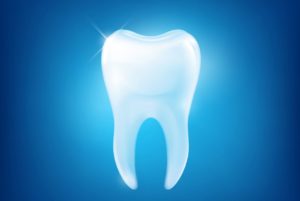
“Dental cavities, or caries are tiny holes within the surface of the teeth. They’re caused by bacteria on the surface of teeth creating acid out of sugar. The foremost common culprit may be a bacterium referred to as Streptococcus mutans.” Says Dr. Urvi Shah who is working with one of the best dental clinic in Mulund. She also added that the bacteria form a sticky film referred to as plaque & the acids in plaque remove minerals from (demineralize) your enamel — a coating of the teeth made mostly of calcium and phosphate. This erosion causes tiny holes within the enamel & once the damage spreads into the dentin layer underneath the enamel, a cavity forms.
Fight cavity at home
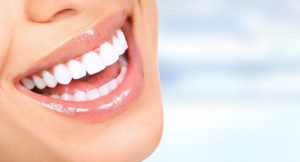
Many home treatments are actually based on a study from the 1930s that concluded that cavities are caused by lack of vitamin D in the regular diet. During this study, dentists found that kids who added vitamin D to their diets showed a relief in cavities. However, those that added vitamin D while also removing grain products from their diets had the best results. This is often possibly because grains can stick with the teeth. Not getting enough vitamin D may make teeth more vulnerable to cavities, but there are other reasons as well.
Other risk factors for cavities include:
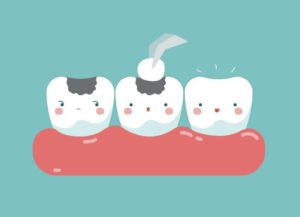
• dry mouth or having a medical condition that reduces the quantity of saliva within the mouth
• eating foods like candy and sticky foods
• frequent snacking on sugary foods or drinks, like soda, cereals, and frozen dessert
• heartburn (due to acid)
• inadequate cleaning of teeth
• bedtime feeding
Home Remedies
Once a cavity has penetrated the dentin, you won’t be able to control it at home without the help of a dentist. The following list of home remedies might help prevent cavities:
1. Sugar-free gum
Chewing sugar-free gum after meals has been shown in clinical trials to assist remineralize enamel. Gum containing xylitol has been researched extensively for its ability to stimulate saliva flow, raise the pH of plaque, and reduce S. mutans, but long-term studies are needed. Sugar-free gum containing a compound called casein phosphopeptide-amorphous phosphate (CPP-ACP) has been shown to scale back S. mutans & you’ll easily find this sort of gum in stores.
2. Vitamin D
Vitamin D is vital to assist absorb calcium and phosphate from the food you eat. You’ll get vitamin D from dairy products, like milk and yogurt. You’ll also get vitamin D from the sun.
3. Brush with fluoride toothpaste
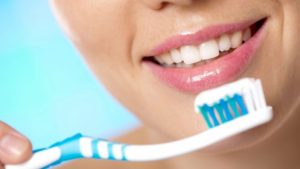
Fluoride plays a crucial role in preventing cavities and remineralizing enamel. Extensive research has been done to point out that often brushing your teeth with a fluoride toothpaste prevents cavities. Most studies are conducted either in children or adolescents, so more research is required in adults and therefore the elderly.
4. Cut out sugary foods
This is the cavity remedy that nobody likes to listen to — stop eating such a lot sugar. the World Health Organization says that eating sugar is probably the most vital risk factor for cavities. They recommend reducing your sugar intake to 10 percent of your total caloric intake for the day. If you must eat sugar, try to not snack on sugary foods throughout the day. Once the sugar is gone, your enamel features a chance to remineralize. But if you’re constantly eating sugar, your teeth don’t get the prospect to remineralize.
5. Licorice root
Extracts from the Chinese licorice plant (Glycyrrhiza uralensis) can combat the bacteria that cause dental cavities. One researcher has taken this to next level and created a licorice lollipop to assist fight cavity. Pilot studies using licorice extract in a lollipop showed they were effective in significantly reducing bacterias within the mouth and thus helped in preventing cavities. Larger and more long-term studies are needed.
Seeing a dentist is necessary
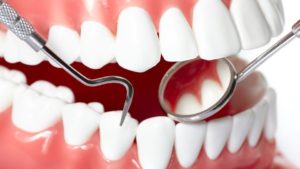
Many dental problems, even deep cavities, develop with no pain or other symptoms. Regular dental checkups are the best option to treat a cavity before it gets worse. Early diagnosis means easier treatment.
Treatment for a cavity include:
• Fluoride treatments: Professional fluoride treatments contain more fluoride than toothpaste and mouth rinses that are available in a store. If stronger fluoride is required daily, your dentist may offer you a prescription.
• Fillings: Fillings are the most reliable treatment when a cavity has progressed beyond the enamel.
• Crowns: A crown is basically a custom-fitted covering or “cap” that’s placed over the tooth to treat extensive decay.
• Root canals: When cavity reaches the inner material of your tooth (pulp), removing it with a root canal could also be necessary.
• Tooth extractions: Removal of a severely decayed tooth.
The bottom line
Vitamin D, oil pulling, licorice lollipops, chewing gum, and other home remedies are not sufficient to treat this condition. But these methods may keep cavities from getting bigger and stop new ones from coming. At best, they will help remineralize softened or weakened areas of your enamels before a cavity can develop. So, we recommend visiting your dentist at least twice a year to get proper check-up done.